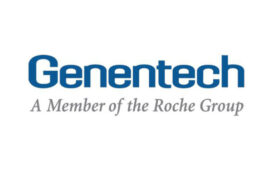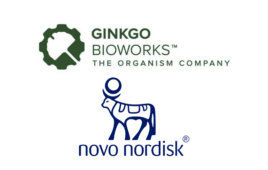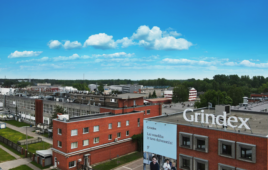 Nestlé Health Science (SWX:NESN) plans on taking a leading role in commercializing Seres Therapeutics’ (NSDQ:MCRB) experimental oral microbiome drug SER-109 for recurrent Clostridioides difficile infection (CDI).
Nestlé Health Science (SWX:NESN) plans on taking a leading role in commercializing Seres Therapeutics’ (NSDQ:MCRB) experimental oral microbiome drug SER-109 for recurrent Clostridioides difficile infection (CDI).
The infection from the bacteria can lead to diarrhea and, in severe cases, severe colon damage and life-threatening inflammation. More than 20,000 Americans die each year from CDI, according to Seres Therapeutics.
SER-109 would be a first-in-class microbiome therapeutic if it wins FDA approval. It is comprised of spores of Firmicutes, a bacteria phylum.
Canaccord Genuity analyst John Newman said he expects FDA approval for SER-109 for CDI, “pending data from the safety database extension study, which we expect to be favorable and similar to Phase 3 study.”
Nestlé will first pay $175 million for shared rights to the drug and an additional $125 million if the FDA approves SER-109. Nestlé also plans to give Seres up to $225 million in potential sales milestone payments.
The alliance “provides the most effective way to get this drug to patients. That means leveraging Nestle’s infrastructure, their reach, their capabilities to serve patients more quickly, more expansively and probably ultimately more profitably than we can do ourselves,” said Seres Therapeutics CEO Eric Shaff in a company webcast.
Under the recent agreement, Seres will cover the costs of development and pre-commercialization activities and will share half of the commercial profits if the drug makes it to the market.
Nestlé Health Science had already acquired rights to Seres’ investigational treatments for CDI and inflammatory bowel disease outside of the U.S. and Canada.
SER-109 has met the primary endpoint from the pivotal Phase 3 ECOSPOR III study. Roughly 88% of patients demonstrated a sustained clinical response at week eight of that study.
In responding to an analyst’s question regarding Seres’ and Nestlé plans on how they might price the drug, Shaff pointed to the high financial toll of CDI and the limited treatment options that have historically been available. Schaff said that there are 170,000 cases of the disease each year in the U.S. and that each recurrence can cost $34,000. In addition, patients with a case of CDI can face recurrence. Schaff pointed the company’s Phase 3 trial results indicating that SER-109 can break that cycle of recurrence. “You can have a strong pharmaco-economic case to charge a price that is reflective of the value that you’re creating for the system and for the patient,” he said. “We certainly think there’s a strong case to charge a price that’s commensurate with the value that we’re creating.”





Tell Us What You Think!